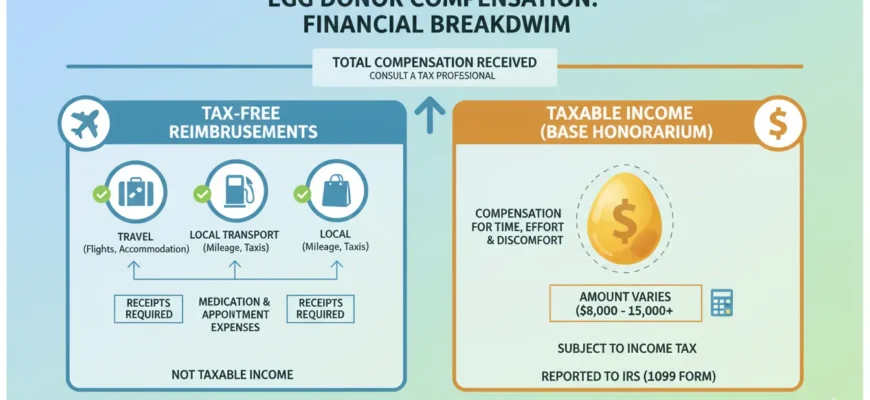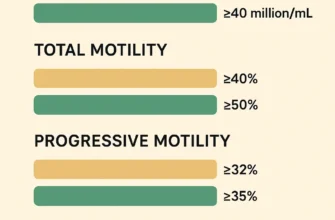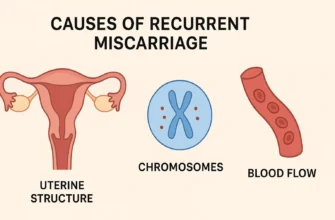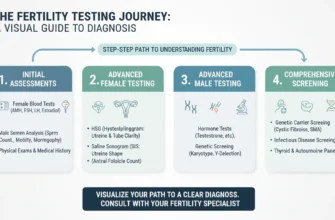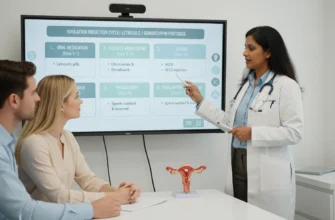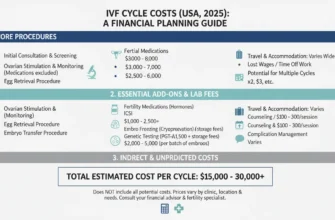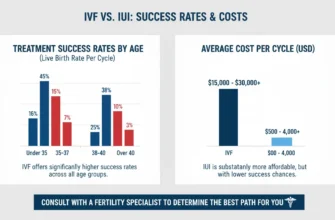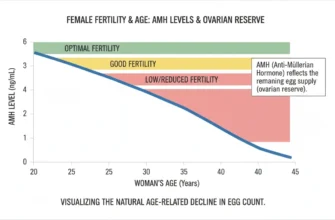How Much Do Egg Donors Get Paid? A Comprehensive Compensation Guide (2024-2025 Update)
Understanding Egg Donor Compensation
The decision to become an egg donor is a profound one, rooted in generosity and the desire to help others build their families. For many, it’s a way to give an incredible gift that can change someone’s life forever. Alongside this altruistic motivation, it’s natural and important to have questions about the practical aspects of the process, particularly regarding financial compensation. This guide provides a clear, comprehensive overview of egg donor compensation, moving beyond a simple number to explain the “why,” “what,” and “how” behind the figures.
The Growing Need for Egg Donors and Your Potential Role
Infertility affects millions of individuals and couples. For many, using a donor egg is their best or only path to parenthood. The need for compassionate, healthy egg donors is significant and continuous. By choosing to donate, you play a pivotal role in making dreams of a family come true and contributing to countless family-building journeys. The egg donation process is a serious commitment of your time, body, and effort, and the compensation you receive is a formal recognition of that significant contribution.
What This Guide Will Cover: Beyond Just a Number
This guide is designed to demystify the financial side of egg donation and the entire donation journey. We will explore the ethical framework for donor compensation, break down the average payment ranges, and detail exactly what a comprehensive compensation package covers—from the base donor fee to travel expenses and medical care. We’ll also walk through the egg donation cycle itself, providing context for the commitment you are making. Additionally, we’ll address tax implications, insurance coverage, and the regulatory landscape that protects both donors and recipients.
What is Egg Donor Compensation? Defining the “Why”
Understanding egg donor compensation begins with a crucial ethical and legal distinction. It is not a payment for your eggs, but rather a recognition of the significant commitment the egg donation process requires.
Compensation vs. “Selling” Eggs: An Important Legal and Ethical Distinction
Legally and ethically, you are not “selling” your eggs. Under U.S. federal law, human organs and tissues cannot be sold. Instead, donor compensation is an honorarium provided for your time, effort, inconvenience, and the physical demands associated with completing an egg donation cycle. This payment acknowledges your dedication to the rigorous screening, medication regimen, and medical procedures involved, ensuring you are fairly recognized for your contribution to reproductive health and future family building.
This distinction was reinforced in the landmark 2015 U.S. Tax Court case Perez v. Commissioner, which established that egg donor compensation is taxable income representing payment for services rendered—the services being the time, effort, and inconvenience of the donation process—rather than payment for the biological material itself.
The ASRM Guidelines and Ethical Framework for Donor Compensation
The American Society for Reproductive Medicine (ASRM) provides ethical guidelines for the industry. Historically, ASRM maintained compensation guidelines stating that compensation should not exceed $5,000, with justification for up to $10,000 in special circumstances. However, in 2016, following the Kamakahi v. ASRM antitrust lawsuit, ASRM removed these compensation caps from its ethical guidelines. The current ASRM guidance states that compensation should acknowledge the donor’s time, inconvenience, and discomfort associated with screening, ovarian stimulation, oocyte retrieval, and post-retrieval recovery. Compensation should be fair and should not be an undue enticement that negatively impacts a donor’s ability to make an informed decision about the donation process and the risks involved.
The framework reinforces that the payment is for the donor’s commitment and burden, not for the eggs themselves or the outcome of the cycle (such as the number of eggs retrieved). This ensures the process remains ethically sound and focused on the well-being of the donor and the integrity of the donation journey.
The Value Exchange: Recognizing Time, Effort, and Inconvenience
An egg donation cycle is a multi-month commitment. It involves a detailed application, comprehensive medical and psychological screening, injectable medication administered daily for several weeks, and frequent appointments for monitoring at a fertility clinic. The process culminates in the egg retrieval, a minimally invasive surgical procedure requiring anesthesia and a recovery period. The donor compensation is a direct acknowledgment of this entire journey—from the initial questions you answer to the time you take off for recovery and the physical toll of cycle medications.
The Average Range: How Much Do Egg Donors Typically Receive?
While compensation varies, there are established ranges that can help you understand what to expect financially from your experience as an egg donor.
National Averages and Compensation Figures (United States)
In the United States, first-time egg donors can typically expect to receive compensation ranging from $8,000 to $10,000 for a completed cycle. This figure is carefully calculated to align with current market rates and fairly compensate for the donor’s commitment. For recipients undergoing fertility treatment with donor eggs, costs are typically higher (fresh donor egg cycles range from $35,000 to $65,000, while frozen donor egg cycles range from $18,000 to $20,000), though the donor’s compensation represents only one component of total costs.
In egg bank situations where eggs are frozen for future use, donor fees typically range from $10,000 to $20,000. For fresh egg donation cycles coordinated directly with intended parents, donor compensation may be structured within the overall fresh cycle costs of $25,000 to $35,000 or more.
It’s important to note that the exact starting donor fee depends on the agency or fertility center and its geographic location, with some metropolitan areas and high-demand markets offering slightly higher compensation.
Factors That Influence Your Compensation Package
Several factors can influence the final compensation amount:
Location and Geographic Variation: Compensation in major metropolitan areas with higher costs of living is typically higher than in other regions. Coastal regions and major cities often offer $12,000-$15,000+ for first-time donors, while other areas may stay closer to $8,000-$10,000.
In-Demand Traits and Characteristics: Donors with specific traits or from certain ethnic or cultural backgrounds that are in high demand may be offered higher compensation to meet the particular needs of intended parents. This might include educational credentials, specific ethnic heritage, proven fertility, health history, or other characteristics.
Agency Fees vs. Clinic-Managed Programs: Whether you donate through an independent egg donor agency or directly through a fertility center’s in-house program can affect compensation structures, though the donor’s base fee usually remains within standard ranges.
Donor Experience and Proven Success: Agencies and fertility clinics highly value donors who have a proven track record of successfully completing a donation cycle.
Compensation for First-Time vs. Experienced (Repeated) Donors
For this reason, experienced or “proven” donors often receive substantially higher compensation for subsequent cycles. After a successful first donation, compensation may increase by $2,000 to $10,000 or more for each following cycle. Some donors report compensation escalating from $8,000 for their first cycle to $15,000-$20,000 for second and subsequent donations, with exceptional cases reaching $50,000+ for highly sought-after profiles.
The ASRM recommends a lifetime limit of six donation cycles to protect the long-term health of the donor and ensure genetic diversity in the population. This limit is based on the recommendation that no single donor should produce more than 25 live births per population area of 850,000.
A Deeper Dive: What Does Your Donor Compensation Package Cover?
One of the most important aspects for potential donors to understand is that the entire process should come at no cost to them. Your compensation is separate from the expenses associated with the donation itself, which are covered directly by the intended parents or the agency.
The Base Honorarium: For Your Time and Commitment
This is the primary donor compensation figure discussed—the payment directly to you for completing the egg donation cycle. This is your compensation to use as you see fit and is typically disbursed after the egg retrieval procedure is complete. This base fee covers your time, inconvenience, physical discomfort during cycle medications, and the demands of the donation journey.
Reimbursement for Direct Expenses
Any out-of-pocket costs you incur related to the donation should be reimbursed. This can include parking fees at the fertility clinic, tolls, or other minor expenses that accumulate during your frequent appointments for monitoring and procedures. Keeping detailed receipts is essential for a smooth reimbursement process.
Travel Expenses: Covering Your Journey to the Fertility Clinic
If you are not local to the fertility clinic, all travel costs are covered. This includes airfare, ground transportation (rental car, rideshare, taxi), hotel accommodations for appointments and retrieval, and a daily stipend for meals (per diem). A travel companion’s expenses are also often covered for the egg retrieval portion of the journey, ensuring you have support during the procedure and recovery period. Some programs provide additional travel allowances for multiple monitoring visits.
Ancillary Costs: Childcare and Lost Wages
Many programs understand that life doesn’t stop during a donation cycle. If you need to miss work for appointments or the retrieval procedure, compensation for lost wages can often be included in your package. Similarly, if you require childcare to attend appointments, these costs may be reimbursable, ensuring that the donation process doesn’t create a financial burden on your family.
The Value of Comprehensive Medical Screening and Care
As part of the process, you will undergo a comprehensive medical and reproductive health evaluation at no cost to you. This includes a physical exam, extensive blood work, and ultrasound imaging of your reproductive organs. This screening provides valuable information about your own health and fertility, which is a significant benefit in itself. All injectable medications during the cycle and monitoring appointments are also fully covered.
Genetic Testing and Counseling: A Health Benefit for Donors
Donors undergo extensive genetic carrier screening to test for hundreds of inheritable conditions. This comprehensive genetic testing not only ensures the health of potential embryos but also provides you with invaluable insight into your own genetic makeup and health risks. Access to a genetic counselor to discuss your results is also part of the process—a service that would otherwise be quite expensive and represents an important component of genetic health information for your personal medical records.
Psychological Screening: Preparing You for the Journey
A psychological evaluation is a standard and crucial part of the screening process. This session with a mental health professional is designed to ensure you fully understand the emotional and psychological implications of donating your eggs and that you are psychologically prepared for the experience. It’s a supportive measure to confirm you are prepared for the process and have a space to ask personal questions about the donation journey and potential long-term effects.
The Egg Donation Process: The Journey Behind the Compensation
To fully appreciate what the compensation covers, it helps to understand the steps involved in an egg donation cycle.
The Initial Steps: Application, Screening, and Matching
The journey begins with a detailed online donor application covering your personal and family medical history. If you pre-qualify based on initial screening, you’ll move on to the comprehensive screening phase, which includes the medical, genetic, and psychological evaluations mentioned above. This donor application process typically takes 2-4 weeks. Once you are fully screened and approved, your donor profile becomes available for intended parents to view. When you are selected by intended parents, legal contracts are signed (covering legal fees and obligations for all parties), and your specific egg donation cycle is scheduled based on synchronization needs.
The Medication Cycle and Ovarian Stimulation
Before egg retrieval, you will undergo controlled ovarian stimulation using injectable medication (such as Gonal F and other FSH-based fertility drugs or GnRH antagonist protocols). This typically lasts 10-14 days. You will administer daily injections to stimulate your ovaries to produce multiple mature eggs. During this time, you’ll have frequent monitoring appointments—typically 4-8 visits to the fertility center—for ultrasound imaging and blood tests to monitor hormone levels and follicle development. Your cycle may also involve birth control pills in the weeks before stimulation to prepare your ovaries.
The Trigger Shot and Egg Retrieval Procedure
Once your follicles reach optimal size, you’ll administer a final “trigger shot” to mature the eggs (typically using either hCG or GnRH agonist protocols, with GnRH agonist being preferred for egg donors due to lower ovarian hyperstimulation syndrome risk). About 36 hours later, you will have the egg retrieval procedure. This is a short, minimally invasive procedure performed under light sedation or anesthesia in a fertility center or IVF clinic. A reproductive specialist uses an ultrasound-guided needle to aspirate the eggs from the follicles in your ovaries. The procedure itself typically takes only 20-30 minutes, though you’ll spend time in pre- and post-operative areas.
Post-Retrieval Care and Follow-up
After the retrieval, you will rest in a recovery area for an hour or two before being discharged into the care of a companion. Most donors can return to normal, non-strenuous activities the following day, though some experience mild discomfort or bloating for 24-48 hours. A follow-up appointment or call will confirm that you are recovering well. Your final compensation is typically paid within a week or two following the successful completion of the retrieval. As part of your post-retrieval care, any complications will be addressed, and you should receive guidance on when to seek emergency care and when follow-up monitoring is needed.
Different Compensation Models and Factors Affecting Your Pay
The structure of your compensation can vary depending on the type of donation and the program you work with.
Fresh Egg Donation Cycles vs. Frozen Egg Cycles
In a fresh egg donation cycle (also called a fresh cycle with fresh eggs), the donor’s cycle is synchronized with the intended mother’s or surrogate’s cycle. The retrieved eggs are fertilized immediately to create embryos, which are then transferred. In a frozen egg cycle (involving frozen donor eggs or frozen embryos), a donor completes her cycle, and the retrieved eggs are vitrified (frozen via cryopreservation) for future use by recipients. Compensation for a frozen donor egg cycle may sometimes be structured differently, as the eggs are going to an egg bank rather than a specific recipient. However, the donor’s time, effort, and physical demands remain the same, so the compensation is generally comparable between fresh and frozen cycles.
Agency vs. Clinic-Managed Programs: Understanding Fee Structures
You can donate through an independent egg donation agency or directly through a fertility clinic’s in-house program. Agencies often have a larger pool of intended parents and manage the coordination, while fertility clinics offer a more integrated medical experience with direct access to their reproductive health specialists. Both models have their own fee structures for the intended parents, but the donor compensation you receive is usually within the same standard range. The key is to work with a reputable organization (whether an agency, egg bank like Fairfax EggBank or Egg Bank America, or clinic like Advanced Fertility Center of Chicago, Methodist Women’s Hospital, or Shady Grove Fertility) that is transparent about its payment process and committed to fair compensation.
Specialized Donor Characteristics and Their Impact on Compensation
In some cases, intended parents are seeking donors with specific, hard-to-find characteristics. This might include donors of a particular ethnicity, those with a documented history of high academic achievement (such as Ivy League graduates), those with proven fertility or previous successful donations, or those with specific health or genetic profiles. In these high-demand situations, the donor compensation may be significantly higher than the standard range—sometimes reaching $20,000 to $100,000 or beyond—to reflect the rarity and specific needs being met. For example, some donors with exceptional profiles have reported receiving $40,000, $60,000, $80,000, or even higher for individual cycles.
Administrative and Hidden Costs: Understanding the Full Picture
Administration Fees and Agency Fees
While your donor compensation covers your contribution, intended parents typically pay additional fees to the fertility center or agency. These may include administration fees, agency and matching fees, legal fees, laboratory fees for embryo culture and embryo freezing, medication cycle costs, and other clinical services. These costs are separate from your donor fee and are the responsibility of intended parents.
Insurance Considerations: Oocyte Donor Insurance and Medical Protection
It’s critical to understand that specialized egg donor insurance (Oocyte Donor Insurance Policies or ODIP) is typically purchased by intended parents or agencies to cover any medical complications arising from your donation. This insurance covers potential complications like ovarian hyperstimulation syndrome (OHSS), ovarian torsion, infections, bleeding, and allergic reactions to medication. Standard coverage typically ranges from $250,000 to $500,000. The cost is usually $395 for standard coverage, with higher limits available. Coverage begins when you start injectable medication and extends for approximately 4 months after your egg retrieval or one complete medication cycle (whichever comes first).
Health Risks and Safety Considerations
Understanding Ovarian Hyperstimulation Syndrome (OHSS)
One of the most important aspects of informed consent is understanding ovarian hyperstimulation syndrome (OHSS). OHSS occurs when your ovaries over-respond to fertility drugs, becoming enlarged and leaking fluid into your abdomen and sometimes your chest. While the risk has been substantially reduced with modern protocols, it remains a potential complication.
Current OHSS Rates with Modern Protocols:
-
Mild OHSS: Up to 33% of cycles
-
Moderate OHSS: 1-3% of cycles
-
Severe OHSS requiring monitoring or emergency care: Less than 1% with GnRH agonist trigger protocols
-
Critical OHSS requiring hospitalization: Rare but documented
Risk Reduction Strategies:
Modern fertility centers use several approaches to minimize OHSS risk: GnRH antagonist protocols for ovarian stimulation (rather than agonist protocols), GnRH agonist triggers for final egg maturation (rather than hCG), and freeze-all strategies for high responders. Some donors are at higher risk due to factors like young age, low body weight, or polycystic ovarian syndrome (PCOS).
Other Potential Complications
Beyond OHSS, potential medical complications from egg donation include:
-
Bleeding or infection at the needle insertion site
-
Damage to surrounding organs (rare)
-
Ovarian torsion (very rare, but documented)
-
Reaction to anesthesia or sedation
-
Blood clots (very rare)
Most of these complications are rare, and standard safety protocols and proper medical screening significantly reduce risks.
Long-Term Health Effects: What We Know and Don’t Know
While short-term risks are relatively well-documented, long-term health effects require additional research. Current data shows:
Postdonation Fertility: Studies have found that 5% to 26.4% of donors reported fertility or menstrual changes after donation, though these rates are similar to the general population, making it unclear whether they’re causally related to donation.
Psychological Effects: Approximately 20% of donors in some studies reported lasting psychological effects from donation, though most donors report positive experiences.
Cancer Risk: An association between fertility drugs and ovarian cancer has been suggested but is not definitively proven. No causal link has been established.
Reproductive Health: Limited long-term follow-up data exist for repeat oocyte donors, and ongoing research is needed to better understand the long-term impact on reproductive health specialists’ patient populations.
The Donor’s Financial Roadmap: Tax and Financial Considerations
Understanding the 1099 Form and Your Tax Obligations
Following the 2015 Perez v. Commissioner Tax Court ruling, egg donor compensation is classified as taxable income. At the end of the calendar year following your donation, the agency or fertility clinic will send you a 1099-MISC form (or 1099-NEC, depending on the reporting entity) documenting the income you received from egg donation. This form is issued for any compensation exceeding $600 in a calendar year.
Your Tax Reporting Responsibilities:
It is your responsibility to report this income on your federal income tax return. The compensation is treated as self-employment income, which means you may owe both income tax and self-employment tax (Social Security and Medicare taxes). The self-employment tax rate is approximately 15.3%, combined with federal income tax rates in your bracket, resulting in an effective tax burden of 25-30%+ depending on your income level and tax bracket.
Example: If you receive $10,000 in egg donor compensation and are taxed at an effective rate of 30%, your net after-tax income would be approximately $7,000.
Deductible Expenses and Tax Planning
You may be able to deduct certain out-of-pocket expenses related to your egg donation through Schedule C (Self-Employment Income and Loss). Potentially deductible expenses might include:
-
Travel costs not reimbursed by the agency or intended parents
-
Childcare costs beyond what’s reimbursed
-
Medical expenses related to complications not covered by insurance
-
Other legitimate business expenses related to the donation
Important: Consult with a qualified tax professional to understand your specific tax obligations and deduction opportunities. Tax laws can vary by state and individual circumstances.
Financial Planning for Egg Donors
Given the tax implications, it’s wise to set aside 25-30% of your donor compensation for taxes rather than spending the entire amount. Some donors establish an emergency fund or invest their net proceeds after taxes, recognizing that egg donation compensation, while meaningful, may not cover all financial goals alone.
Updated Regulatory and Legal Context
FDA Regulations and Donor Eligibility Requirements
Egg donation in the United States is regulated by the FDA under guidelines for tissue donor eligibility. All potential egg donors must undergo specific infectious disease testing at FDA-approved laboratories:
Required Testing: HIV, Hepatitis B and C, syphilis (RPR), cytomegalovirus (CMV), gonorrhea, and chlamydia screening must occur within 30 days before or 7 days after egg retrieval.
FDA Compliance: Reputable fertility centers maintain strict FDA compliance in their donor screening and follow all FDA regulations for tissue donors. This includes both anonymous (non-directed) and directed (known) donor situations.
Directed Donation Exception: In cases of directed donation (where the donor is known to the recipient), tissue that doesn’t meet standard FDA eligibility criteria may still be used if the recipient provides informed consent and understands the theoretical risks.
The Kamakahi Lawsuit and ASRM Compensation Caps
In April 2011, egg donor Lindsay Kamakahi filed a class-action antitrust lawsuit challenging ASRM’s and SART’s (Society for Assisted Reproductive Technology) compensation cap guidelines, which had limited payments to $5,000 to $10,000. Kamakahi alleged that these caps constituted illegal price-fixing in violation of the Sherman Act. In 2016, ASRM responded by removing the compensation caps from its ethical guidelines, recognizing that compensation decisions should be made individually by clinics and agencies rather than through industry-wide caps. This settlement and guideline change represent a significant shift in the fertility industry’s approach to donor compensation.
What to Expect: Timeline and Key Milestones
-
Application and Screening: 2-4 weeks – Complete questionnaires, medical history, and initial screening
-
Comprehensive Screening: 2-6 weeks – Medical exams, blood work, genetic testing, psychological evaluation
-
Matching and Legal Process: 1-4 weeks – Intended parents review your profile, legal contracts are executed
-
Medication Cycle: 1-2 weeks preparation, then 10-14 days of stimulation – Injectable medications, monitoring appointments
-
Egg Retrieval: Day 1 – Procedure and recovery
-
Post-Retrieval Care: 1-2 weeks – Follow-up appointments, monitoring for complications
-
Compensation: Typically within 1-2 weeks post-retrieval – Final payment is disbursed
Total Timeline: Typically 8-16 weeks from application to completion
Transparency and Ethical Practices: Working with Reputable Organizations
When selecting an egg donation agency or fertility clinic, ensure they practice transparent compensation structures. Reputable organizations should:
-
Clearly disclose all compensation components in writing before you commit
-
Provide written proof of egg donor complication insurance
-
Have established protocols for monitoring your health throughout the cycle
-
Offer no-cost or low-cost psychological counseling
-
Maintain FDA compliance and adherence to ASRM guidelines
-
Offer transparent fee schedules with no hidden costs
-
Provide clear information about what is covered and what is not
-
Have established policies for addressing complications
-
Offer a rematch option if your initial match doesn’t proceed to retrieval
Frequently Asked Questions
Q: Can I donate eggs while on birth control?
A: Most donors take birth control pills in the weeks before stimulation to prepare their ovaries for controlled hyperstimulation.
Q: How many times can I donate?
A: ASRM recommends a maximum of six donation cycles in a lifetime to protect your long-term health.
Q: What if something goes wrong during my cycle?
A: Your medical care is covered by the specialized egg donor insurance policy, and you should have immediate access to emergency care through the fertility center.
Q: Will egg donation affect my future fertility?
A: Most research suggests egg donation does not impair future fertility. However, ongoing studies continue to examine long-term effects, and you should discuss this with your fertility specialist.
Q: Is my identity disclosed to intended parents?
A: That depends on whether you pursue anonymous (non-directed) or directed (known) donation. ASRM guidelines support both options, and specific practices vary by agency and fertility center. In non-directed donation, recipients receive non-identifying information about you. In some cases, directed donation allows you to be known to the recipients.
Q: What if I change my mind during the cycle?
A: If you decide to stop before egg retrieval, contact your agency or fertility clinic immediately. Once you commit to donation, there may be legal and financial implications, so it’s important to discuss this scenario upfront.
A Meaningful Financial Recognition of an Extraordinary Gift
Becoming an egg donor is an act of extraordinary kindness and generosity. While the decision is deeply personal, understanding the financial compensation is a practical and necessary step in making an informed choice. The payment you receive is a professional acknowledgment of your significant investment of time, physical effort, emotional labor, and commitment to helping create families.
This compensation is designed to ensure that this generous act does not become a financial burden, while fairly recognizing the demands you undertake. By covering all medical, travel, and related expenses, the system allows you to focus on the donation experience itself while knowing your contribution is valued and respected every step of the way.
The egg donation landscape has evolved significantly with legal settlements, updated regulatory frameworks, and advances in safety protocols. If you are considering this path, we encourage you to ask detailed questions, work with a reputable agency or fertility clinic, conduct thorough research on prospective organizations, understand the financial and health implications fully, and feel confident that your incredible contribution is valued and respected at every stage of the donation journey.
Your decision to help others build their families through egg donation is profound—and your compensation should reflect the seriousness of that choice.
Resource Guide
For More Information:
-
American Society for Reproductive Medicine (ASRM): www.asrm.org
-
RESOLVE (National Infertility Association): www.resolve.org
-
The Donor Sibling Registry: www.donorsiblingregistry.com
-
FDA Tissue Donor Eligibility: FDA.gov
-
Your local fertility center or egg donation agency for program-specific details
Tax Resources:
-
IRS Publication 587: Business Use of Your Home
-
IRS Schedule C: Profit or Loss From Business
-
Consult a qualified tax professional for personalized guidance
Health and Safety:
-
Discuss all risks with your fertility specialist
-
Request written information about OHSS and other complications
-
Ensure you have copies of all medical testing and results
-
Ask about emergency protocols and 24/7 contact information

